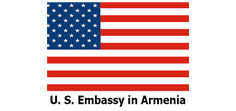Since the launch of the large-scale war waged by Baku against the Republic of Artsakh on September 27, the Azerbaijani media referred to international documents, conventions, often manipulating and quoting them out of context.
The Fact Investigation Platform has referred to some of them.
Who are considered mercenaries under the Geneva Convention?
In an article published on October 19, presenting to the readers the video of the Armenian Ministry of Defense about volunteers coming to Armenia from the Diaspora, Vesti.az claims that these people are mercenaries.
According to the author, although Armenians do not consider Diaspora Armenians as mercenaries, the 1977 Geneva Convention provides otherwise. “According to the Additional Protocol to the Geneva Convention signed in 1977, a mercenary is any person who is specially recruited locally or abroad in order to fight in an armed conflict, does, in fact, take a direct part in the hostilities, is neither a national of a party to the conflict nor a resident of territory controlled by a party to the conflict, is not a member of the armed forces of a party to the conflict, has not been sent by a state which is not a party to the conflict on official duty as a member of its armed forces,” the article reads.
In fact, the news website has omitted a whole paragraph in the protocol, according to which the mercenary is motivated to take part in the hostilities essentially by the desire for private gain and, in fact, is promised, by or on behalf of a party to the conflict, material compensation substantially in excess of that promised or paid to combatants of similar ranks and functions in the armed forces of that party.
It is a well-known fact that the Ministry of Defense does not pay the Armenians who come to Armenia, that is, to claim that they are motivated by the desire for private gain is groundless, and has nothing to do with reality.
It is noteworthy that, unlike Armenia, Azerbaijan has not ratified any of the three additional protocols to the Geneva Convention. It should be noted that the Geneva Convention, which regulates humanitarian rules in military situations, was signed in 1949. Later, 3 additional protocols were attached to the Convention.
The UN Resolution
On October 18, the Prosecutor General’s Office of Azerbaijan released a video warning of the legal consequences of foreign citizens and individuals with no citizenship entering their territory illegally. According to them, crossing the border into Artsakh without Azerbaijan’s permission is also considered an illegal action.
The video has been translated into several languages, including Russian, English and Spanish.
According to the Prosecutor’s Office, Nagorno Karabakh and the surrounding districts are an integral part of Azerbaijan: “Resolution 62/243 adopted by the UN in 2008 once again confirmed the territorial integrity and sovereignty of Azerbaijan.”
In this case too, the essence of this international document has been manipulated. Moreover, it has no legal effect.
The resolution was presented to the UN General Assembly on the initiative of Azerbaijan. In particular, it stated that “the UN reaffirms continued respect and support for the territorial integrity of Azerbaijan, demands the immediate and unconditional withdrawal of Armenian forces from the occupied territories of Azerbaijan,” also stating that “no state shall recognize as lawful the situation resulting from the occupation of the territories of the Republic of Azerbaijan, nor render aid or assistance in maintaining this situation”.
The three OSCE Minsk Group co-chair countries – the United States, Russia and France – voted against this resolution. Moreover, the Minsk Group Co-Chairs issued a statement stating that it could undermine the peace process. The Co-Chairs noted that the settlement of the conflict is possible only through bilateral compromises. “Unfortunately, this draft resolution selectively propagates only certain of these principles to the exclusion of others, without considering the Co-Chairs’ proposal in its balanced entirety,” they concluded.
A total of 39 countries voted in favor of the resolution, 7 against, and most of the countries (100) abstained.
Thus, the Prosecutor’s Office of Azerbaijan manipulates the content of the document that has no legal significance, trying to present it as a ground for not visiting Artsakh.
The Azerbaijani media often refer to international documents, the content and significance of which are manipulated.
Loosineh Voskanyan

 FACTOMETER
FACTOMETER










